Beauty
The 'Gen Z Boss in a Mini' skincare founder who infuriated Andrew Tate has landed in NZ
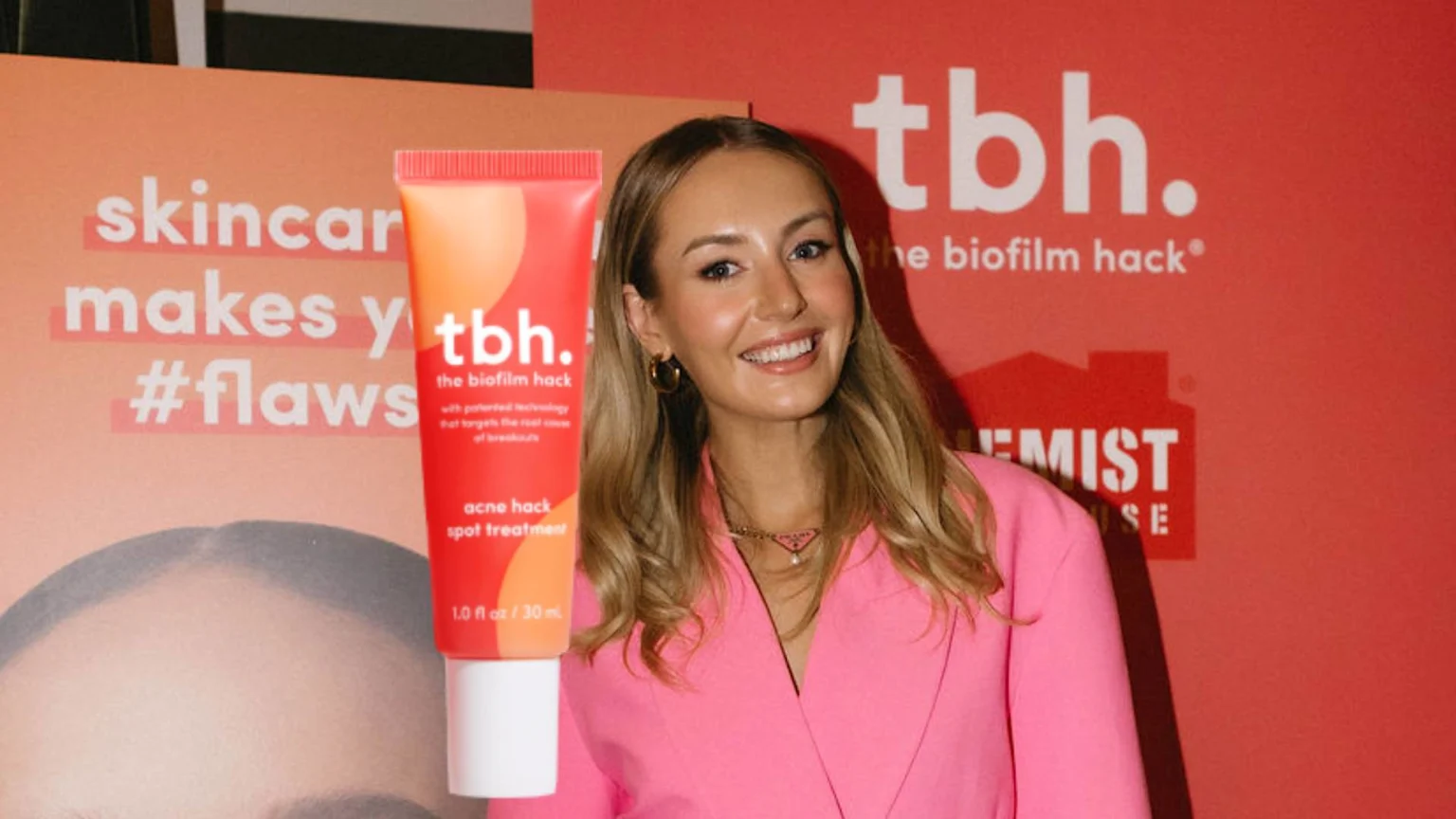
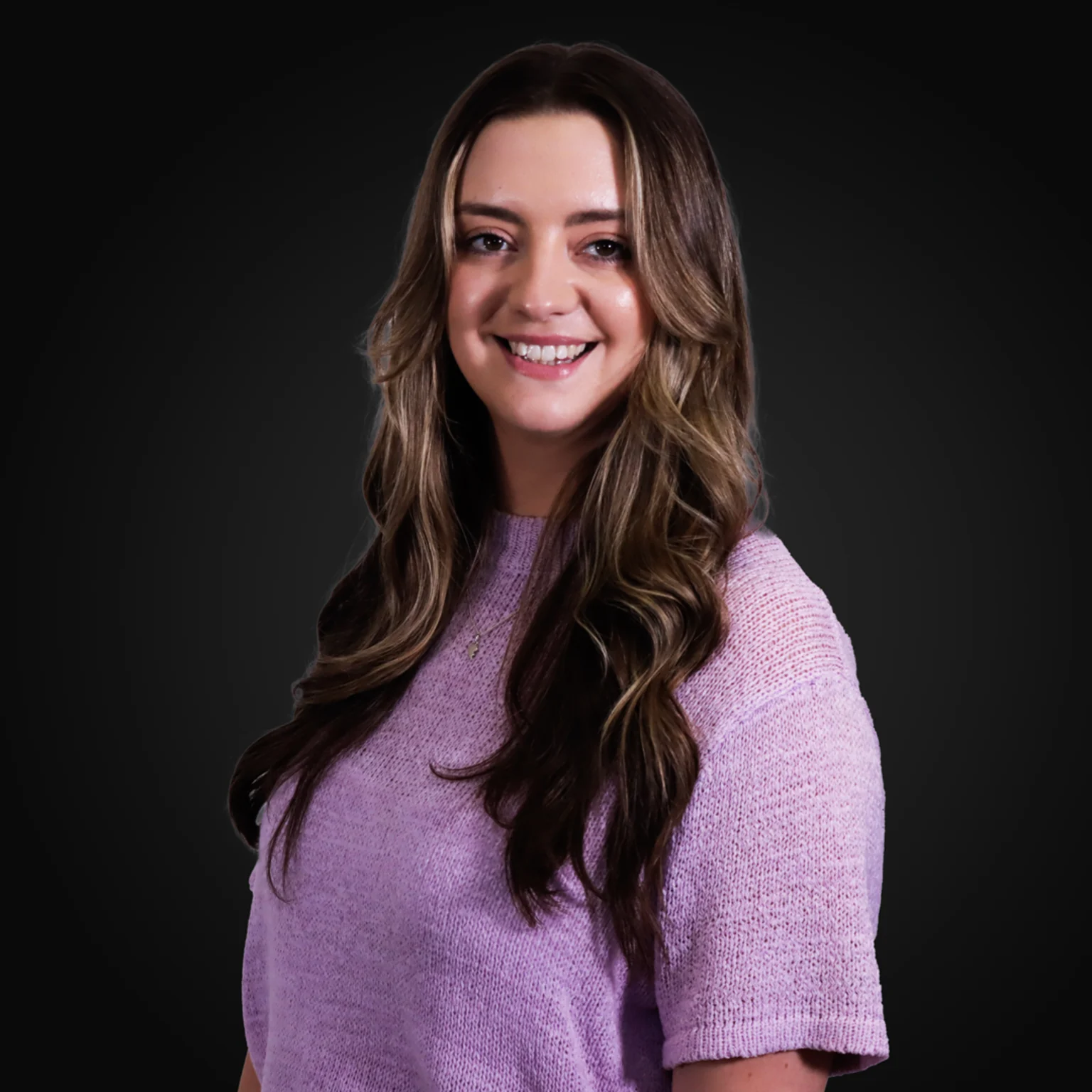
Published by Monika Barton
12 Jun 2025
You might have seen tbh skincare's viral TikTok, heard of the cult favourite 'Milky Toner' or spotted the brand's co-founder on Forbes' 30 Under 30 list.
Maybe you're none the wiser about the trending skincare range that's just made it to Aotearoa from across the ditch - but the story of how Rachael Wilde started it all is worth knowing.
At just 23, Rachael left her marketing job in the medical device industry, where she had learned about a groundbreaking 'biofilm' acne treatment, which was particularly interesting to her as someone who had spent a decade struggling with breakouts.
Last month, in front of an audience of Kiwi influencers and media (including me), Rachael explained she thought she would work at a "big sexy company" when she finished uni, maybe doing something like creating a Super Bowl ad for Coca-Cola - so she was kind of underwhelmed by her first gig. Little did she know it would provide the kind of opportunity every entrepreneur dreams of, but one that few in their early twenties would have the confidence to run with.
Part of what made tbh a success in Australia - apart from the science behind the products - was the brand's TikTok presence, featuring Rachael and her team having fun in their Sydney office.
When they jumped on the 'boots and a slick back bun' trend, where women stand in a circle and chant fun characteristics about themselves and their outfits, Rachael unwittingly cemented her title as "Gen Z Boss in a Mini" - but she couldn't have anticipated what came next.
When the clip was posted to X, it prompted a wave of vitriol totally at odds with the praise it had originally received from tbh followers. "Just get back in the kitchen," one comment read. "Fire every single one of them," said another, while a third suggested: "Bring back gender pay gap [sic]".
Then self-proclaimed misogynist Andrew Tate chimed in, warning his over 10 million followers: "If you do not escape The Matrix, women like this will be your boss.
"Zog Corp [a white supremacist theory that believes Jewish Zionists secretly control Western politics] loves emasculating men by forcing them to listen to semi-sentient females. If that doesn’t motivate you to get rich. Nothing will.”
Ironically, Rachael and the tbh gang actually used the hate comments to make another TikTok, earn more followers, and presumably bring in more revenue as a result. Take that, Tate.
Now tbh has launched in NZ, I chatted to Rachael about skincare, online hate, running a company with her mum, and much more.
Do you ever get sick of the 'Gen Z boss in a mini' title now that it's become such a thing? Does it ever feel reductive?
I think it only feels reductive if I let it feel reductive. I know intrinsically that I’m more than just the ‘Gen Z boss in a mini’ title, and the people who know me or have followed our journey closely know that too.
But if that moment online was how some people first discovered the brand, then honestly… I’ll take it. I don’t mind poking a bit of fun at myself and leaning into it. It’s a big part of our history now, and instead of taking it too seriously, I’ve chosen to just have fun with it.
What was your first thought when you learned Andrew Tate was talking about you on social media?
Honestly, my first thought was: 'Surely this isn’t real.' Quickly followed by: 'Oh no, this is probably going to send every person on the internet we don't want to be talking to directly our way.'
But mixed in with that was a weird sense of satisfaction, because if you’re ruffling the feathers of Mr Andrew Tate, you’re probably doing something right.
You had a seemingly cool, calm reaction to the misogynistic backlash - including taking the piss out of it - but did any of it make you and your team angry or hurt?
We definitely went through a wave of emotions throughout the whole thing. At first, the commentary felt so far removed from reality that it was almost hard to take seriously; it just felt absurd. But as it ramped up and those voices got louder, it did start to feel heavier. It was sad and, to be honest, a bit confronting to realise just how many people still hold those kinds of views about women.
It’s easy to live in a bit of an echo chamber, especially when you're surrounded by a supportive community, so being hit with such a tidal wave of misogyny was a harsh reminder of what still exists out there.
It was unnerving to see those opinions spread so quickly and aggressively online, and we were really conscious of how damaging that kind of narrative can be, not just for us, but for any woman trying to show up in the workforce and lead (or just literally be herself).
That said, I think we found a lot of bravery in standing our ground. We didn’t let those voices derail us or make us shrink ourselves. If anything, it strengthened our resolve to keep doing what we’re doing and to keep showing up, unapologetically. And our community strengthened and rallied around us. We had the support of those who mattered, and that’s what we took away from it.
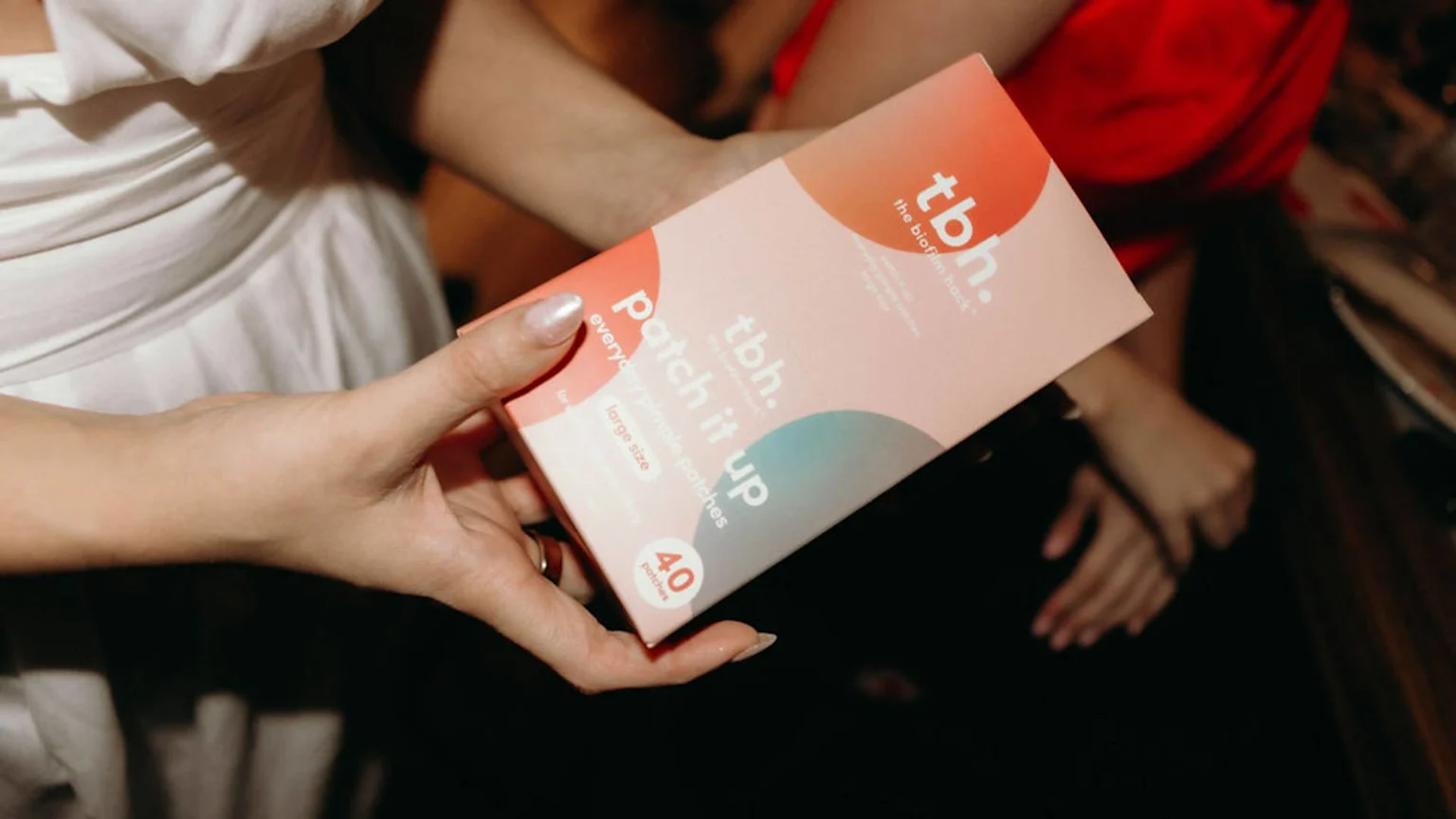
What's it like to start a company at 23 years old?
Honestly, I think I was pretty naive when I started the business, which, in hindsight, was actually a superpower. I went into it with so much optimism and energy, and just this unshakeable belief that it was going to work. I had no idea how many hurdles were coming my way, but I think that’s kind of what helped me push through them. Sometimes being a little oblivious is the best thing - you don’t overthink it, you just get started.
There were definitely moments where my age didn’t do me any favours, particularly when it came to raising capital. A lot of funding still comes from older male investors, and they don’t always see the power of the beauty category or understand the female customer firsthand.
In 2020, only 2.3% of VC funding went to women-led startups, which is pretty wild when you think about the influence women have on consumer spending.
But on the flip side, being young really helped me connect with our audience. I was on the same platforms, dealing with the same skin struggles, speaking the same language, and that helped shape tbh into something that felt real and relatable. So, while it wasn’t always easy, I think starting young gave me a unique edge.
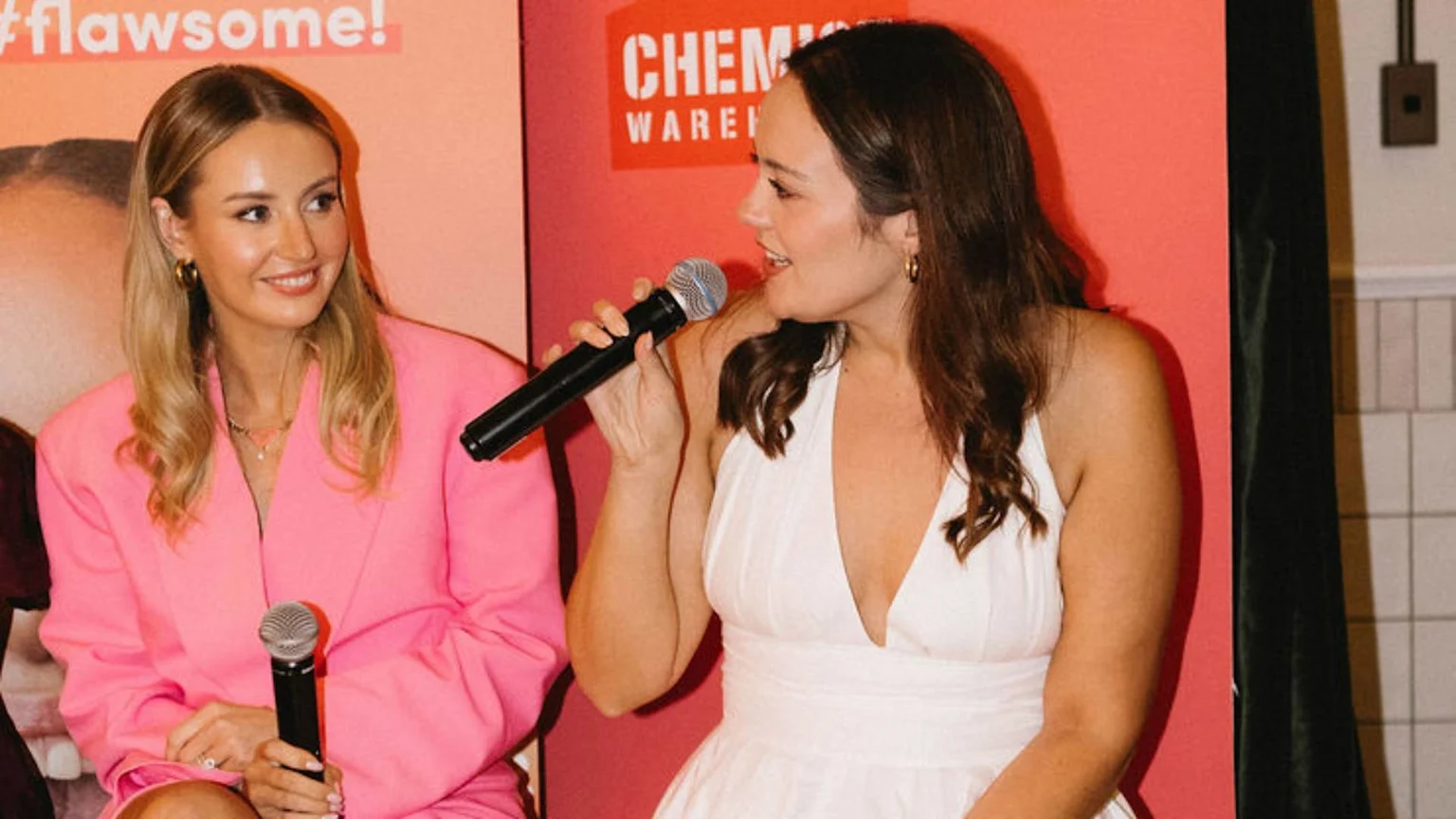
How have you found working with your mum?
In the early days, it was definitely a challenge. We were navigating how to shift from a purely mother-daughter relationship to a professional one, and when it was just the two of us in the business, there wasn’t much separation between work and home.
But over time, we really learned to appreciate what the other brought to the table. I’m more creatively led, I like to take risks and think big picture, whereas Bridget has always been super detail-oriented and data-driven and wants to make sure we can guarantee future revenue with the marketing efforts we are going to invest in. That created a bit of natural tension in the early days, especially when we were bootstrapped and every decision felt critical. But now, that difference is actually one of our biggest strengths. We balance each other out.
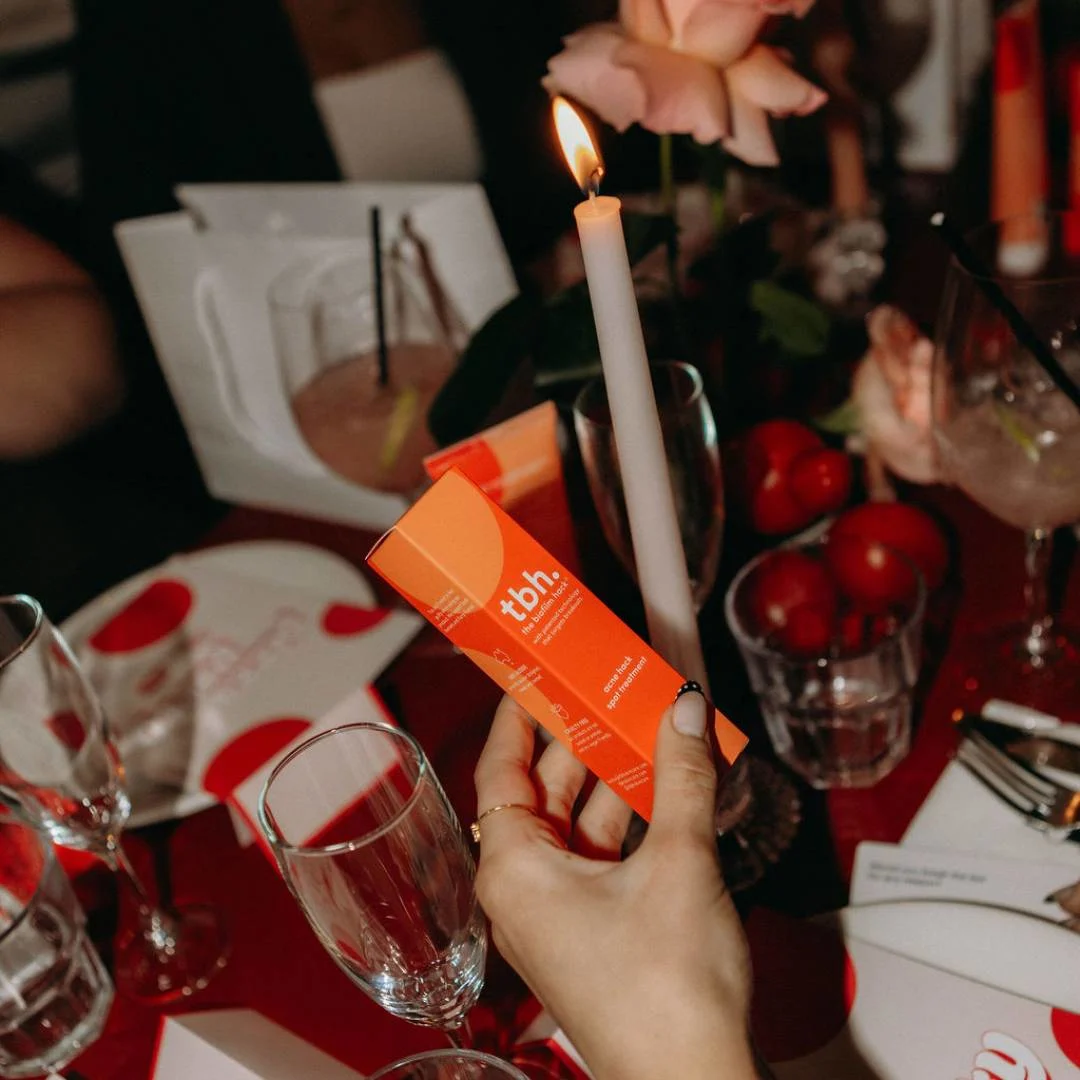
We’ve also built clearer boundaries over time, like the fact that I call her ’Bridget’ at work instead of ‘Mum’ (which felt super weird at first but now just rolls off the tongue), and making a conscious effort to make time for personal mother-daughter time outside of seeing each other in the office.
Working with family can be intense, but it’s also incredibly rewarding. I think it is so special that we've been able to witness this crazy growth in the business and have been on that whole journey together.
What advice do you have for any woman encountering misogynistic commentary online, particularly if it's targeted at them?
Certain voices online can start to feel really loud if you let them. My biggest piece of advice is to be mindful of how much of it you're consuming. When you step back and moderate your exposure, you start to realise that it’s not as loud or as widespread as it might feel in the moment. Often, it lives in a very specific pocket of the internet, and you're so much bigger and braver than that.
It’s about knowing when engaging with the commentary might serve a purpose, and when it’s just not helpful anymore. That line can be hard to find, but trust your gut.
Sometimes it’s worth responding and standing your ground, because your story might spark an important conversation for someone else. Other times, it’s okay to just ignore it and protect your peace.
Whatever you do, don’t let it shrink you. That’s exactly what those voices want… to make you smaller, quieter, less bold. But the best thing you can do is keep showing up, focus on the good you can do in the world, and keep moving forward anyway.
Finally, what's your message to women struggling with their confidence in the workplace when it comes to wearing what they want, being themselves, asking for a raise or sharing their ideas?
First of all, if you're constantly feeling like you can’t be yourself at work, I think it’s worth asking whether that workplace is actually the right one for you. Culture matters, and you deserve to be in an environment that doesn’t make you question your worth, your ideas, or your identity.
That said, my biggest encouragement would be to challenge yourself to show up fully as you. Show up, speak up, wear the outfit, ask the question… and know that you’re not just advocating for yourself, you’re making space for the next woman to do the same, too.

Published by Monika Barton
12 Jun 2025